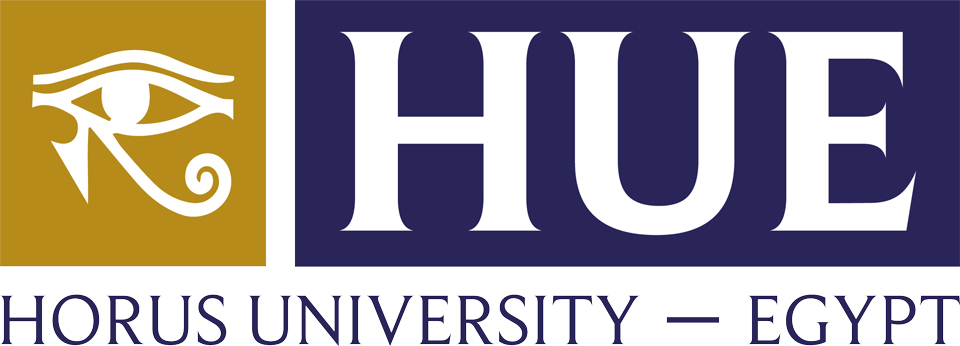A CA often serves important stakeholders with trustworthy information about the company’s finances, audits accounts, and offers advice on financial records. The importance of the accounting and finance department, playing a front line role in controlling the economic effect of disruption, is being reinforced. This reinforcement is driven by the constantly changing corporate environment and consumer habits. Many organizations rely on their accounting teams to collect and evaluate snapshot data in order to support ongoing planning and growth initiatives. This is because companies lack the historical data road map they need to compare their actions to benchmarks or forecast potential future scenarios. ‘CPA’ and ‘CA’ are terms that are often used interchangeably online, which can cause some confusion to aspiring accountants.
Choosing a career path in accounting involves understanding the differences between various accounting standards and the specific requirements of different jurisdictions, such as US GAAP for those in the United States. In the accounting profession, CA qualifications emphasize knowledge of tax laws and financial management, while professionals working under US GAAP might focus more on international financial reporting standards. Accounting firms often require expertise in both financial management and adherence to specific accounting standards, whether they follow US GAAP or other regional practices. The Certified Public Accountant, or CPA certification, is considered one of the most prestigious accounting qualifications in the United States. Candidates want to pursue a qualification by holding a bachelor’s degree and 150 semester hours of relevant coursework. Then the candidate must pass a prestigious four-section exam in auditing, financial reporting, regulation, and business concepts.
CPA vs CA – Exams and Passing Criteria
A CA typically advises about financial records and audits accounts and gives other trustworthy information to key stakeholders about the company’s finances. This article aims to understand CPA vs CA a little closer in terms of eligibility, fees, course duration, recognition, opportunities, and exam levels to help all aspirants make a better and more informed choice. For those based in or aiming to work in the United States, or in countries with strong business ties to the U.S., a CPA qualification provides a significant advantage.
In some countries, like India, the demand for CAs is high, and the remunerations are worth considering, especially in top firms or when you have a certain number of years of experience. When deciding your choice of profession in accountancy, you may be in a dilemma to choose between CPA or CA. If you’re located in or targeting countries within the Commonwealth, or if you prefer a qualification that’s widely recognized in various parts of the world, the CA course is preferable.
Chartered Accountant (CA)
- In contrast, the CA course, while less expensive overall, involves costs spread over a longer duration, including tuition fees for various levels and training programs.
- Deciding whether to pursue the CPA or CA qualification depends on several factors including your career goals, geographical preferences, and personal interests in the accounting field.
- Today, many different countries have their own institutes, each offering a distinct pathway to the Chartered Accountant (CA or ACA) license.
- CAs, with their versatility, might have a slight edge in terms of future prosperity, provided they embrace technological advancements and diversify their skills accordingly.
- Level 3 includes 8 papers arranged in a way similar to Level 2 on more advanced topics.
- This guide will help explain the process and outcome of each license and help you decide which is best for your career.
The average is about two years of practical work in government, industry, or public accounting roles. Both CPA and CA professionals face a future where AI and technology play a crucial role. CPAs have a significant opportunity in leveraging technology within the realm of American accounting standards and business practices. Becoming a CPA involves passing the Uniform CPA Examination, which is a standardized exam administered by the AICPA. The exam covers various topics related to accounting, auditing, taxation, and business law. The CA and CPA USA are both outstanding degrees that may provide a career in accounting with a competitive edge.
- In the world of Certified Management Accountants (CMA), CPE in CMA stands for Continuing Professional Education.
- Typically, it involves completing a recognized accounting degree program and meeting specific academic requirements set by the accounting body.
- This course prepares individuals for a wide range of accounting and finance roles, emphasizing expertise in financial management, regulatory compliance, and ethical accounting practices.
- Before embarking on either journey, it’s important to understand the investment required and what is entailed to achieve these designations as well as the ultimate benefits of finishing either program.
- The passing score is 75 or higher; the average pass rate for each section varies around 50-60%.
- Candidates for the CPA also have to accumulate professional experiences under a licensed CPA, emphasizing proficiency in financial management, regulatory compliance, and ethical accounting practices.
If your ambition beda ca dan cpa is to work in multinational corporations, especially those based in or dealing with the United States, or if you have a keen interest in US GAAP, the CPA is a more suitable choice. It’s also ideal for those looking to specialize in areas like forensic accounting or auditing in the U.S. Both CPA and CA qualifications open doors to a range of global opportunities, but the CPA is more US-centric, while the CA is more versatile in Commonwealth and other countries adhering to IFRS.
From a technical standpoint, the CA course curriculum is largely focused on auditing and tax concerns, and one can also tread on the path of CA to CPA USA for maximum global exposure. Additionally, CPA candidates must gain professional experience under a licensed CPA. This course prepares individuals for a wide range of accounting and finance roles, emphasizing expertise in financial management, regulatory compliance, and ethical accounting practices.
Intermediate Level:
Therefore, weigh your career goals, location, and interest in accounting practices to choose either of the above qualifications. CAs may have a broader scope of practice, depending on the regulations of the country or region. They may engage in various accounting and business-related activities, including auditing, taxation, financial reporting, consulting, and advisory services.
Career Opportunities – CA vs. CPA USA
Making a sound career option will not be too tough now that we have nearly discussed all the differences – CA vs. CPA. The decision between CA to CPA is difficult, nevertheless, because both degrees have flourishing careers. Both courses are the best in their respective regions when it comes to comparing which one is superior. Choosing a well-optimized US CPA certification course is the best choice if you want to work abroad or for a multinational company.
In addition, CA candidates need to complete ICITSS and AICITSS training during their journey, with fees for these programs typically around ₹6,500 for the Information Technology Program and ₹7,000 for the Orientation Program. Certified Public Accountant (CPA) is a professional designation granted by state or national accounting bodies, such as the American Institute of Certified Public Accountants (AICPA). If your ideal role would take you outside the United States to work for international companies which aren’t traded on US markets, you likely would find the Chartered Accountant certification more relevant. If you want to work in the US, you will most likely want to become a licensed CPA. Both CPAs and CAs focus on providing financial services for clients – either personal, small business or large corporations.
Flexibility and Duration of the Program
It typically involves a combination of advanced education, rigorous examinations, and practical training. The CA designation is regulated by country-specific accounting bodies, which set standards, codes of ethics, and conduct regulations for CAs. These bodies may also require CAs to maintain continuing professional education and adhere to specific professional standards. CPAs are trained to provide a wide range of accounting, auditing, taxation, and financial advisory services.
This guide will help explain the process and outcome of each license and help you decide which is best for your career. One goes for the CA to CPA USA transition as they might get some exemptions in satisfying the CPA eligibility requirements. CA – After taking the Senior Secondary Examination, candidates must take the Common Proficiency Test (CPT) in order to qualify for the Indian CA Examination. Every year, the CPT Examination is held in June and December; thus, the first thing you need to do is register for the exam 60 days beforehand, or by the first of April & the first of October, respectively. In the world of Certified Management Accountants (CMA), CPE in CMA stands for Continuing Professional Education. It is a highly critical requirement for CMAs to maintain their certification and be in tandem with developments in…
You do not need a graduate degree, though graduate programs can count towards this total. In order to qualify, they first needed to meet the 150 College Credit requirement, the work experience requirement and then pass the four-part Uniform CPA exam. The choice between the two should align with the candidate’s career goals, their educational background, and their readiness to commit to the demanding nature of these professional accounting courses. The CPA designation is regulated by state boards of accountancy in the United States. State boards establish licensing requirements, enforce ethical standards, and oversee the professional conduct of CPAs.

